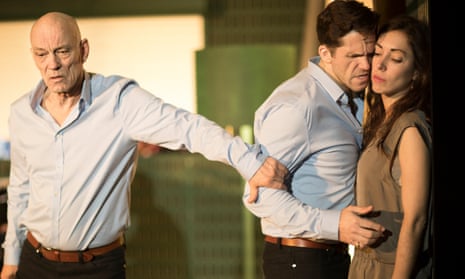Ivo van Hove’s staging of Janáček’s song cycle The Diary of One Who Disappeared, already widely seen in Europe and the US, has entered the Royal Opera’s repertory for a short run at the Linbury. It’s a complex piece of theatre that probes both the tensions surrounding the work’s genesis and its own unclassifiable nature as music drama.
Written in 1919 for tenor, mezzo, three distant female voices and piano, the song cycle deals with a love so powerful it overrides social boundaries. It is a portrait of a farmer’s son who abandons family, community and the fabric of his own life for the sake of Zefka, a Gypsy with whom he becomes obsessed. Its inspiration, however, derives from Janáček’s own relationship with Kamila Stösslová, the married woman many years his junior with whom he was deeply, if platonically, in love.
Van Hove’s approach is not for purists. He adds five extra songs for Zefka (Marie Hamard), composed by Annelies Van Parys, and incorporates extracts from Janáček’s correspondence with Stösslová, spoken by actor Wim van der Grijn, who in turn becomes the main protagonist. The work is also relocated to a modern-day photography studio, where Van der Grijn, a widower who could “only give half my love to my wife”, pores over the pictures of Zefka that constitute his life’s work, while imagining what his world might have been like had his younger self (Ed Lyon) defied convention to be with her.
At its best, it is erotic and troubling, though not all of it works: there’s nothing here to suggest why Zefka is an outsider, or why loving her should be so dangerous. A photographer’s desire for his model, consummated or otherwise, would hardly be deemed transgressive in the milieu Van Hove evokes.
It’s beautifully acted and sung. In terrific voice, Lyon generates considerable onstage chemistry with Hamard’s self-assured Zefka. Van der Grijn superbly suggests a man whose present is continuously eroded by the past. And it’s all bound together by subtle, lapidary playing by pianist Lada Valešová. A flawed evening, but fascinating.
At the Linbury theatre, London, until 8 June.

Comments (…)
Sign in or create your Guardian account to join the discussion